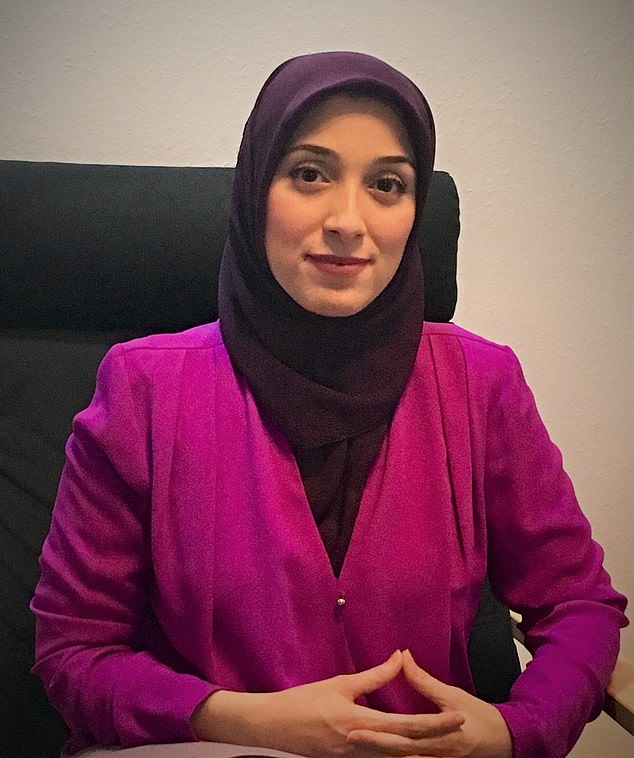A female Muslim nanotechnologist has revolutionized a new tool that can ‘listen to bacterial communication’ in a way that could help curb antibiotic resistance and accurately diagnose a group of diseases in a matter of seconds, Daily Mail reported.
“The new technology used within my test is able to pick up bacteria and make a diagnosis within 30 seconds. I hope it will allow doctors to prescribe specific drugs straight away, reducing the use of blanket treatments or guesswork,” explained Dr. Fatima Al-Zahraa Al-Atraktchi.
The Muslim mother of two kids, born in Kuwait to Lebanese and Iraqi parents, earned her Ph.D. certificate in physics and nanotechnology at the Technical University of Denmark (DTU) in January 2018.
Al-Atraktchi developed a sensor that can detect Pseudomonas aeruginosa, a problematic bacterial infection for people with compromised immune systems, faster than traditional methods.
Thanks to her scientific breakthrough, Al-Atraktchi received in November 2017 one of the Lundbeck Foundation’s five research talent awards for scientists under 30 years old. Following this, she founded her own company ‘PreDiagnose’ to develop, expand, and commercialize her research.

Pictured is Dr AlZahra’a Alatraktchi
Al-Atraktchi’s test, still under development, could be used to diagnose everything from Urinary tract infection (UTIs) to lung infections in cystic fibrosis patients.
The groundbreaking test works by translating conversations bacteria have before they colonize and attack, which is when they can become life-threatening.
Antibiotic Resistance
Researchers highlighted that current standard testing such as throat swabs can take up to days to produce a result and lead to a diagnosis. This leads doctors to prescribe antibiotics ahead of time, fueling drug resistance which is labeled as one of the biggest threats to global health.
“You’ll get treatment exactly for you based on the samples you give on the point of infection. There are antibiotics that cover everything but aren’t very specific. Doctors change them depending on results from the lab,” Al-Atraktchi explained.
“This old standard method is a huge waste of resources. My hypothesis is that if we know the exact bacteria, we can target the treatment and reduce the aanount of antibiotics used per patient. In fact, Bacteria communicate by secreting molecules. When there’s a large accumulation of these molecules, it signals to the bacteria that they aren’t alone,” she continued.
The Muslim scientist further informed that the bacteria acknowledge there’s an opportunity to attack the body and initiate action when there’s a high enough threshold. Together they may overrule healthy bacteria, thrive, and excrete a toxin that’s dangerous to the human body.
Al-Atraktchi recognized her test’s potential while trialing it on 62 patients with cystic fibrosis in 2016, of which the results are yet to be published. It caught the bacteria conversations in more than half of patients where traditional diagnostic tests had come back negative.
“Extended clinical trials are taking place and within a year, there should be at a test for at least one microorganism because there are guidelines to follow in order to change a treatment plan,” she hopes.
According to the World Health Organization, antibiotic resistance is rising to dangerously high levels in all parts of the world. Antibiotic resistance occurs when bacteria change in response to the use of these medicines.
Bacteria, not humans or animals, become antibiotic-resistant. These bacteria may infect humans and animals, and the infections they cause are harder to treat than those caused by non-resistant bacteria.